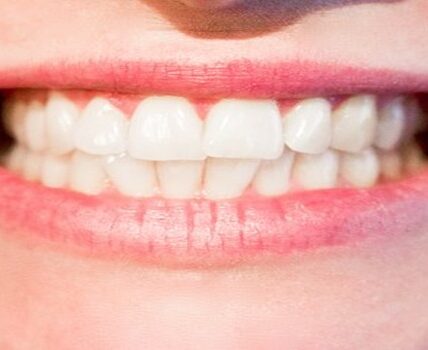Periodontal disease, or gum disease, is a common condition that affects the tissues surrounding and supporting the teeth. It is often painless in its early stages, meaning many people don’t realize they have it until it’s too late. However, when caught early, periodontal disease is highly treatable and manageable. This is why regular dental checkups are essential—they provide the opportunity for early detection, which can prevent gum disease from progressing and causing long-term damage to your oral health.
In this blog post, we will explore the importance of early detection in preventing periodontal disease, the role of regular dental checkups, and the potential consequences of neglecting your oral health.
What Is Periodontal Disease?
Periodontal disease is an infection of the tissues that surround and support the teeth. It is typically caused by the accumulation of plaque—a sticky film of bacteria that forms on teeth. When plaque is not properly removed through regular brushing and flossing, it hardens into tartar, which can only be removed by a dentist or hygienist. Over time, the bacteria in plaque and tartar irritate the gums, leading to inflammation and infection.
There are two main stages of periodontal disease:
- Gingivitis: This is the earliest stage of gum disease, characterized by redness, swelling, and bleeding gums. Gingivitis is usually caused by the buildup of plaque. The good news is that gingivitis is reversible with proper oral hygiene and professional cleaning.
- Periodontitis: If gingivitis is left untreated, it can progress to periodontitis. In this stage, the infection spreads deeper into the supporting structures of the teeth, including the bone. This can lead to gum recession, pockets forming between the teeth and gums, and eventually tooth loss. Periodontitis is a serious condition that requires more intensive treatment, such as scaling and root planing, or even surgery in some cases.
The Role of Regular Dental Checkups
Regular dental checkups play a vital role in maintaining optimal oral health and preventing the development of periodontal disease. During a checkup, your dentist or hygienist will perform a thorough examination of your teeth and gums, looking for signs of early gum disease. If any issues are identified, they can be addressed before they worsen.
Some of the key benefits of regular dental checkups in preventing periodontal disease include:
1. Early Detection of Gum Disease
One of the most significant advantages of regular dental visits is the early detection of gum disease. Dentists have the expertise to spot the subtle signs of gum disease that may not be obvious to the untrained eye. Early detection is crucial because, at this stage, gum disease is often reversible with proper treatment. A dentist can recommend a professional cleaning and guide on improving your oral hygiene habits to prevent further progression.
2. Professional Cleanings to Remove Plaque and Tartar
Even with the best at-home care, plaque and tartar can build up in hard-to-reach areas of the mouth, especially along the gumline. Professional cleanings remove this buildup, preventing the bacteria from causing infection. During a cleaning, a hygienist uses specialized tools to remove tartar and plaque that regular brushing and flossing cannot reach. This can prevent the development of gingivitis and, ultimately, periodontitis.
3. Monitoring Gum Health Over Time
At each checkup, your dentist or hygienist will assess the health of your gums, looking for signs of inflammation, redness, swelling, or bleeding. They will also measure the pockets between your teeth and gums, which can indicate the presence of gum disease. By monitoring these aspects of your oral health over time, your dentist can track changes and take action if gum disease is detected early. This proactive approach can prevent more serious damage from occurring.
4. Providing Personalized Advice for Oral Hygiene
During your dental checkup, your dentist will provide personalized advice on how to improve your oral hygiene routine. This may include recommendations on brushing techniques, the best toothbrushes and toothpaste for your needs, and tips on flossing and using mouthwash. Your dentist may also discuss the role of nutrition in oral health, as a balanced diet can help keep your gums and teeth healthy.
5. Identifying Other Risk Factors for Gum Disease
Your dentist can help identify other factors that may put you at an increased risk of developing periodontal disease. These can include smoking, certain medications, medical conditions like diabetes, and even genetics. Identifying these risk factors early allows you to take steps to reduce your chances of developing gum disease and address any underlying issues that may be contributing to your oral health problems.
The Consequences of Ignoring Periodontal Disease
When periodontal disease is left untreated, it can have serious consequences for your oral health and overall well-being. As gum disease progresses, it can lead to:
- Tooth Loss: The most severe consequence of advanced periodontal disease is tooth loss. As the infection damages the supporting bone and tissues around your teeth, they may become loose and eventually fall out. This can lead to the need for costly treatments, such as dental implants or bridges, to restore your smile.
- Bone Loss: Periodontal disease not only affects the gums but also the bone that supports your teeth. As the infection spreads, it can cause the bone to deteriorate, making it difficult to support teeth in their sockets.
- Increased Risk of Systemic Health Problems: Research has shown that periodontal disease is linked to various systemic health conditions, including heart disease, diabetes, respiratory issues, and even pregnancy complications. The bacteria from gum infections can enter the bloodstream and contribute to these health problems.
- Chronic Bad Breath (Halitosis): Gum disease can cause persistent bad breath due to the buildup of bacteria and the infection in the mouth. This can affect your social life and overall quality of life.
- Expensive Treatment Costs: If gum disease is detected late, treatment can become more complex and costly. Advanced periodontal disease may require surgical procedures or ongoing maintenance treatments, which can be more expensive than preventative measures or early-stage treatments.
The Bottom Line
Regular dental checkups are essential for maintaining your oral health and preventing the progression of periodontal disease. By visiting your dentist regularly, you allow for early detection of gum disease, which can be treated effectively before it becomes a serious issue. Professional cleanings, monitoring of your gum health, personalized advice, and the identification of risk factors all contribute to keeping your gums and teeth in optimal condition.
If you haven’t had a dental checkup in a while, schedule an appointment today. Early detection and prevention are key to maintaining a healthy, beautiful smile for years to come. At Castle Hills Dentistry, we are committed to providing comprehensive dental care that prioritizes your health and well-being. Reach out to us today to learn more about our services and how we can help you achieve and maintain healthy gums.





